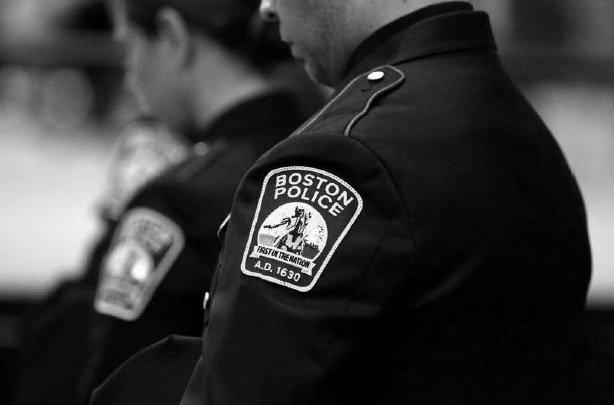
Many of the provisions of the landmark police reform bill passed last year actually become law July 1, and the clock will start ticking on the promises made, the reforms envisioned for Massachusetts. JONATHAN WIGGS/GLOBE STAFF
Change has come slowly. It’s everybody’s business to keep redefining and expanding the idea of what makes us safe.
There won’t be any parades or fireworks on July 1 as there are on July Fourth- although perhaps there should be some way to mark the day policing changes in Massachusetts.
Of course, it won’t be that easy. Change doesn’t happen in a flash. There is no magic wand to make policing better and fairer overnight, to make the words “public safety” mean the same thing to all people, including Black and brown people, who have long been disproportionately targeted by policing and the criminal justice system. But many of the provisions of the landmark police reform bill passed last year actually become law July 1, and the clock will start ticking on the promises made, the reforms envisioned for the Commonwealth. And like the foundational document the nation celebrates on July Fourth, this law, too, makes some enduring promises, like: “All persons shall have the right to bias-free professional policing” – a right that will now be enforceable under the Massachusetts Civil Rights Act.
The law may be short on poetry, but it’s long on prose aimed at protecting the public from police officers who have demeaned the badge and whose continued service endangers not just the public but their fellow officers. The power to protect the public from such officers and to hold them more accountable now rests with the newly constituted Peace Officer Standards and Training (POST) Commission.
The nine-member commission, named in April and headed by retired Judge Margaret Hinkle, remains central to the future of policing reform as embodied by the law. It will have the power to certify – and, most important, to decertify – police officers. And though the panel has held several (remote) meetings in June, it is still in the process of
hiring staff, including an executive director, and finding office space. It is expected, however, to quickly meet the first of its mandated responsibilities, promulgating “developmentally appropriate de-escalation and disengagement tactics,
techniques, and procedures and other alternatives to the use of force for minor children.” Draft guidelines are already up on the commission’s website. Broader regulations on the use of force generally – to be drafted in conjunction with the Municipal Police Training Council (a separate body responsible for setting policies and standards for police training) – are due Sept. 1. In theory, of course, the POST Commission could also be in direct receipt of complaints for alleged misconduct as of July 1, but it would face no immediate deadlines for acting on those.
New limits on the use of facial recognition technology kick in July 1 as well, narrowing its use without a court order except “in emergencies involving substantial risk of human life” or in cases involving efforts to identify the deceased. A commission assigned to suggest further changes in state law on its use is scheduled to report at the end of the year.
That commission is just one of 16 authorized by the reform law to do deeper dives into civil service laws, a statewide cadet program aimed at diversifying local police departments, and qualified immunity (a legal precedent that currently shields officers from most civil liability and therefore thwarts culture change in police departments). On the last. state lawmakers punted – the reform law only lifts the virtual ban on civil suits
for officers whose conduct was so egregious that it led to their decertification. Efforts to ban qualified immunity on the federal level, meanwhile, appear stalled in Congress as it debates a police reform bill that would be in George Floyd’s name.
Without ongoing political pressure, the public shouldn’t assume the July 1 date will suddenly bring forth all the remaining unfulfilled promises of this legislation. Some measures, of course, have already gone into effect, like the sections related to the State Police, which became law last December when the governor signed the bill. That included
sections allowing the state’s least diverse police force to set up its own cadet program with an eye toward increasing racial and gender diversity in its ranks. But it wasn’t until mid-May that the governor requested funding for a proposed class of 40 cadets. That request, included in a supplementary budget for the current year, is still pending.
Meanwhile, several hundred people are directly involved in the work of those commissions – studying and planning what the future of policing and public safety will look like here. But it will take more. It will take the kind of passion and involvement that brought people into the streets in the wake of the death of George Floyd on a Minneapolis street more than a year ago.
It will take local involvement, holding municipal officials accountable for the police union contracts they sign, for the resources they put on the street, and ultimately for realizing that not every “incident” requires a response by someone with a badge and a gun.
Police reform as a concept is now etched into state law. Its progress, however glacial it seems at the moment, is still on a decent trajectory. But the broader issue of public safety, exploring what it truly takes to make all of us safer – that cries out for ongoing reexamination and a deeper level of citizen commitment over time.

Leave a Reply